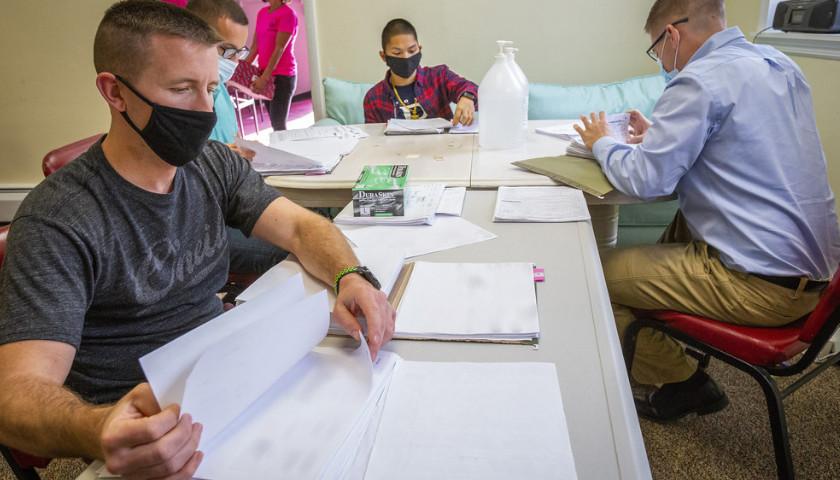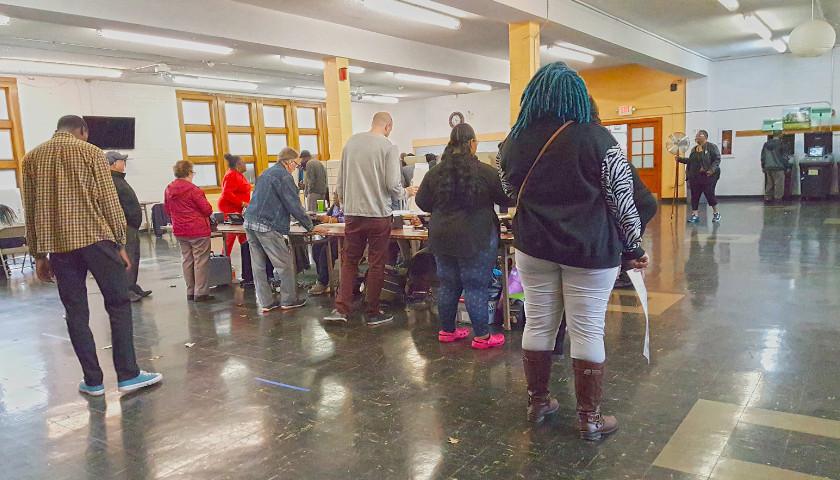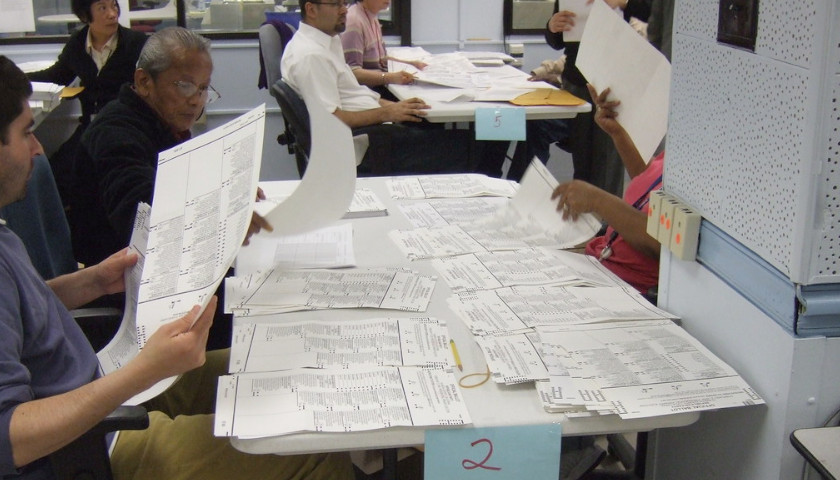Cochise County Supervisor Tom Crosby, who attempted to conduct a hand count of ballots during the 2022 election and delayed the certification of election results, filed a lawsuit with another Arizonan, David Mast, against numerous Arizona officials challenging the results of the election. The lawsuit cited lawbreaking regarding signature verification on mail-in ballots, asserting that the violations resulted in “hundreds of thousands of illegal votes in all statewide results for the 2022 General Election.”
It provided a list of suggested remedies, including decertifying the election and conducting a new one.
The complaint, authored primarily by attorneys Ryan Heath of The Gavel Project and Alex Haberbush of the Lex Rex Institute, named as defendants Governor Katie Hobbs, Attorney General Kris Mayes, Secretary of State Adrian Fontes, Maricopa County Recorder Stephen Richer, Richer’s Co-Election Directors Rey Valenzuela and Scott Jarrett, and the five Maricopa County Supervisors.
It stated that “the results from Maricopa County counted a material number of vote-by-mail ballots in violation of A.R.S. § 16-550(A), a ‘nontechnical’ and nondiscretionary law.”
The complaint requested for relief that the court “order a recount of all vote-by-mail ballots cast in Maricopa County, or, should that prove legally impossible, order a statewide recanvass based only on the legal votes cast in other counties or, in the alternative, order Maricopa County elections officials to decertify all statewide races for the 2022 General Election and order a new election to be conducted in Maricopa County in a manner that ensures strict compliance with Arizona’s election safeguards.”
A.R.S. 16-550(A) requires comparing voters’ signatures on ballot envelopes returned with mail-in ballots with the signatures on their voter registrations. “Except for early ballots tabulated as prescribed in section 16-579.02, on receipt of the envelope containing the early ballot and the ballot affidavit, the county recorder or other officer in charge of elections shall compare the signatures thereon with the signature of the elector on the elector’s registration record.”
The complaint said this statute was violated since reviewers “verified signatures against historical documents instead of the registration record.” Those “historical documents” include “in-person roster signatures and early voting affidavits from previous elections.”
The brief cited testimony given by Valenzuela during Lake’s second election contest trial. At that trial, it was revealed that “tens of thousands of signatures were accepted by a single individual in just two seconds.” The complaint asserted that this was “not enough time to scroll down as is necessary for a lawful comparison to a ‘registration record’ signature.”
The complaint said the defendants claim the meaning of “record” includes “historical” signatures due to a legislative change in 2019. SB 1054 changed the phrase “registration form” to “registration record.” However, the plaintiffs noted that the Final Fact Sheet for SB 1054 stated that the signatures on the ballot envelopes “shall be compared with the signature on the elector’s registration form.”
Additionally, they noted that on the Maricopa County Recorder’s website until May 2022, it stated in the “Frequently Asked Questions” section, “[w]hen an early ballot is received through the mail, the unopened affidavit packet (green envelope with ballot sealed inside) is scanned to acknowledge receipt and to capture the signature of the voter on the envelope. The captured signature is used by staff to compare it to the signature on file from the given voter’s original registration form or forms.”
The brief stated that the “election results are uncertain,” citing Arizona case law where elections have been overturned due to election problems resulting in uncertainty over which candidate won. Arizona courts have held that an election can be overturned if a “non-technical” statute is violated.
“This law is a ‘non-technical’ statute because it advances the constitutional goal of ‘setting forth procedural safeguards to prevent undue influence, fraud, ballot tampering, and voter intimidation,’” the brief said, citing the Arizona Court of Appeals case Reyes v. Cuming.
In that case, involving an election contest in a county supervisor race in Yuma County, the election was overturned since the Yuma County Recorder failed to compare the ballot envelope signatures to the signatures on voter registrations. The Arizona Court of Appeals reversed the lower court’s ruling, which had allowed the election results to stand, even though it was over a year after the election. The higher court emphasized the importance of the statute, stating the law was imperative to “secure the purity of elections and guard against abuses of elective franchise.” The court went on, “[e]lection statutes are mandatory, not ‘advisory,’ or else they would not be law at all,” and dismissed the trial court’s concern that “it would be impracticable for the [Yuma County] Recorder to comply with A.R.S. 16-550(A).”
Since 1.3 million voters cast early ballots in Maricopa County’s 2022 election, “every single one of those 1.3 million votes is tainted by the fatal stain of ‘uncertainty,’ requiring the setting aside of all votes from Maricopa County for statewide races for the 2022 General Election,” the complaint asserted.
Jennifer Wright, who previously served as the Election Integrity Unit civil attorney under former Attorney General Mark Brnovich and who is now representing Kari Lake and Abe Hamadeh in their election challenges, expressed skepticism about the lawsuit’s chances. She told the Arizona Daily Independent, “Although I share many of the [Crosby/Mast] Petition’s concerns about the administration of the 2022 election, a special action petition asserting original jurisdiction in the Arizona Supreme Court on what amounts to a late-filed election contest is not likely to succeed,” Wright said. “I suspect it will be summarily denied.”
Crosby was subjected to a recall effort due to his election integrity efforts, but it failed. In January, Heath sued the trial court judge who threw out Lake’s election contest.
– – –
Rachel Alexander is a reporter at The Arizona Sun Times and The Star News Network. Follow Rachel on Twitter. Email tips to [email protected].





